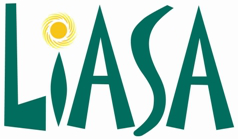Speaker
Ms
Segarani Naidoo
(Durban University of Technology Libraries)
Description
This paper is based on a master’s study undertaken to investigate the impact of the digital divide on information literacy training of Extended Curriculum Programme (ECP) students at the Durban University of Technology (DUT). The demographics of higher education student enrolment in South Africa have evolved over the years. Today such enrolments comprise a heterogeneous group of students, by race, economic background, information literacy (IL), digital background, educational background, etc. The literature commonly defines the digital divide as the gap or divide between those with access to and skills in information and communication technologies (ICTs) and those without such access or skills. In South Africa there are currently students entering the higher education environment who have never used the Internet or disadvantaged students from the rural areas who have little or no knowledge of technology. It is often argued that physical access to technology is not enough to bridge the digital divide and thus training becomes an important aspect to address the problem of the digital divide. Students at the Durban University of Technology (DUT) have access to technology but many have no prior knowledge of how to use the information technology tools available to retrieve information that is needed. South African higher education institutions have students that fall into both categories - some students have had no ICT access and have no ICT skills while there are those who have had access and are skilled in the use of ICTs.
The study, which this paper reports on, was largely a qualitative one, using questionnaires and interview schedules to collect data. The study also aimed to indentify innovative teaching and learning methods to accommodate the diversity of students in the IL classroom and to recommend guidelines for teaching and learning of IL that accommodate the digital divide among participating students. Data was collected via a questionnaire from ECP students enrolled in 2010 for information literacy training at DUT. This was triangulated with data collected by means of an interview schedule used to gather data from Subject Librarians involved in teaching of the information literacy module to ECP students, as well as by means of a separate interview schedule used to collect data from the DUT Extended Curriculum Programme Co-ordinator. Qualitative and quantitative data were prepared for analysis by means of content analysis and numerical coding, respectively and then subjected to statistical analysis via SPSS (Statistical Package for the Social Sciences. Version 17) which produced percentage and frequency distributions to ascertain findings. The study found that the digital divide does impact on information literacy training in the higher education context in ways such as, inter alia, slowing down the progress of IL lessons and disadvantaged students needing more interventions to bridge the information and digital divide. The study recommends, inter alia, that computer literacy training should be provided for digitally disadvantaged ECP students before IL training commences and creative teaching and learning methods, such as online tutorials, games and group work, be used to accommodate both digitally advantaged and digitally disadvantaged students in the IL classroom.
Primary author
Ms
Segarani Naidoo
(Durban University of Technology Libraries)

